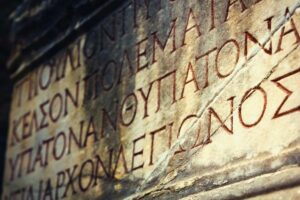Two Turkish researchers have de-bunked the British claim that the Parthenon Marbles were a gift by the Ottoman Sultan Selim III to Lord Elgin. The Sultan did not issue an edict (ferman) allowing Elgin to loot the Acropolis, the researches have found.
The Parthenon Marbles have been at the center of a decades-long tussle between Britain and Greece, with the British Museum to vehemently reject their return to Athens.
Professors Zeynep Aygen and Orhan Sakin have researched Turkey’s state archives from the Ottoman times, where every ferman was documented, stamped and carefully registered. Aygen and Sakin did not find a ferman (edict) issued by the Sultan allowing the 7th Earl of Elgin, Thomas Bruce, British ambassador to the Ottoman Empire in the early 1800s, to loot the Acropolis of Athens.
hey said the only document regarding the issue is an Italian translation of a friendly letter from Kaimakam Pasha – not the sultan – allowing Lord Elgin to take casts of the sculptures without any permission to remove the fabulously crafted marbles that had stood on the monument for 2,200 years. But they said that the Italian translation’s original copy is not in the archives as well.
The incident came to light when Aygen, a professor from Mimar Sinan University, conducted a presentation in Greece.
“They [Greek experts] asked me if I have seen any documents about the marble panels [of the Parthenon] that Lord Elgin took from the Acropolis [of Athens]. I am a restoration architect; I had no knowledge of the subject. I told them that a historian should conduct the research. When I got back, I told Professor Orhan Sakin about this,”Aygen told Turkish daily Hürriyet.
Aygen stressed that the letter in question is not a ferman since there is no sign of an order from the sultan. “This is a translation. The original version of the letter does not exist. Professor Sakin has scanned the Ottoman archives and did not come across either the letter or the edict,” she said.
Sakin, an expert on Ottoman archives, emphasized that the existence of the claimed edict is dubious and the letter does not contain any evidence of an order by Sultan Selim III.
“Allegedly, district governor Seyyid Abdullah Pasha signed the said Italian letter, but there is no wet signature. When grand viziers went off for wars, they would task district governors. Nevertheless, such a decision cannot be made without the Sultan’s permit,” Sakin said.
The expert also stressed that during that period, the grand vizier Yusuf Ziya Pasha was in Egypt with France’s emperor Napoleon I, in 1789.
“The letter was given to a commander in Athens. It is not possible for the district governor to give a letter to the commander,” he said.
“Even looking at the letter’s contents shows that it is not a ferman,” Sakin said.
Every ferman is recorded in books and such a permit of a looting can only be given by a ferman, said Sakin.
In the early 1800s, Lord Elgin removed many marble pieces from the Parthenon temple in the Acropolis of Athens in Greece.
“Fearing the destructive results of the ongoing conflict between Greeks and the Ottomans, the British nobleman packed the classical sculptures in about 200 chests and sold every piece to the U.K. parliament,” the Turkish daily notes.
Lord Elgin claimed at the time that a ferman issued by the Ottoman Sultan III allowed him to plunder Acropolis. But as his claim of having a permit to remove the pieces was never confirmed, the 200-year-long dispute over the marbles between Greek and British authorities continues to this day.
PS Can Greece make a point with absence of an official edict? Time will show.












